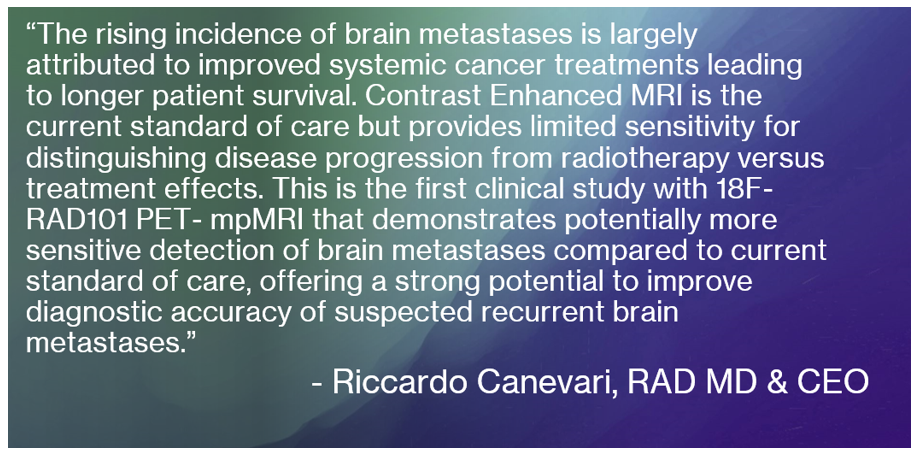Highlights
- A clinical study has demonstrated RAD 101’s ability to detect brain metastases in both treatment-naïve and previously treated patients.
- RAD101 detected all brain metastases, regardless of primary tumor origin, with a high tumor-to-background ratio.
- RAD 101 Phase 2b clinical trial is currently open for recruitment in the US.
Radiopharm Theranostics (ASX:RAD, NASDAQ:RADX) has unveiled the publication of a groundbreaking study on a novel multiparametric imaging methodology involving 22 participants. The study demonstrated the successful detection of brain metastases using RAD 101 (18F-Pivalate).
The research provided proof-of-concept for the use of RAD 101 (18F-Pivalate) in detecting brain metastases from various primary solid tumors, including both treatment-naïve and previously treated cases.
Study Findings and Methodology
The clinical study was published by Islam et al. in the European Journal of Nuclear Medicine and Molecular Imaging. The study introduces a new imaging methodology using the proprietary radiotracer 18F-RAD101 in a hybrid imaging technique that combines Multiparametric Magnetic Resonance Imaging (mpMRI) and Positron Emission Tomography (PET).
The study involved 12 treatment-naïve patients (who had no prior brain radiation treatment) and 10 patients who had previously undergone brain radiation therapy. The findings revealed that all brain metastases, regardless of their primary tumor origin, were successfully detected using 18F-RAD101 PET-mpMRI, with the imaging demonstrating a high tumor-to-background ratio.

RAD shares jump
Following the announcement, RAD’s shares surged by 4% to AU$0.026 per share at the time of writing on 10 February 2025.



